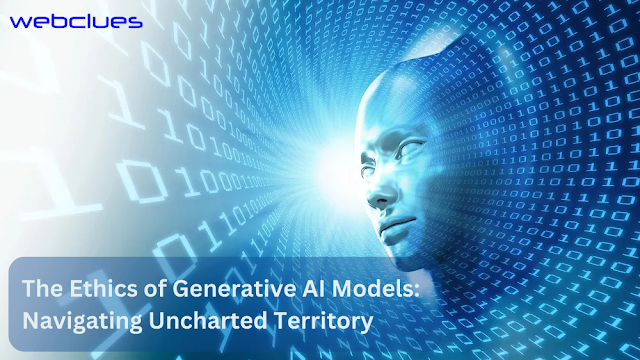The rapid advancements in Artificial Intelligence, particularly in the realm of generative models, have ushered in a new era of possibilities and challenges. GenAI models, such as OpenAI's GPT-3, are capable of producing human-like text and creative outputs, revolutionizing industries like content creation, language translation, and more. However, as we venture further into this uncharted territory, the ethical implications of these powerful models become increasingly complex. Balancing innovation with responsibility is crucial, as Generative AI Models raise questions about bias, accountability, and the potential misuse of technology.
Ethical Considerations in Generative AI
Bias and Fairness:
GenAI models are trained on vast datasets, often reflective of the biases present in society. These biases can inadvertently be perpetuated and amplified in the generated content. Issues related to gender, race, and socio-economic status can manifest in the language and recommendations produced by these models. Ethical considerations dictate the need for continuous scrutiny of training data, bias detection, and mitigation strategies to ensure fair and unbiased outputs.
Transparency and Explainability:
Generative Artificial Intelligence models, particularly deep neural networks, are often perceived as "black boxes" due to their complex architectures. Ensuring transparency and explainability is a fundamental ethical requirement. Users and stakeholders must be able to understand how these models arrive at their conclusions and generate content. Striking a balance between model complexity and interpretability is essential for building trust and accountability.
Accountability for Outputs:
As genAI models become more capable of producing sophisticated outputs, the question of accountability arises. If a model generates content that is harmful, misleading, or inappropriate, who bears responsibility? Establishing clear lines of accountability and defining the ethical responsibilities of developers, organizations, and users is imperative. A shared understanding of ethical guidelines and responsible use is essential in mitigating potential harm.
Privacy Concerns:
Generative Artificial Intelligence models have the potential to process and generate text based on sensitive information. Protecting user privacy becomes a paramount concern. Striking a balance between data utilization for model improvement and safeguarding individual privacy is a delicate ethical consideration. Developers must prioritize robust privacy measures and adhere to regulations to prevent the misuse of personal information.
Navigating Uncharted Territory
Continuous Monitoring and Evaluation:
The rapid evolution of generative AI models necessitates ongoing monitoring and evaluation. Ethical considerations should not be static but rather dynamic, evolving alongside advancements in technology. Continuous assessment of model behavior, bias detection mechanisms, and the societal impact of generated content is crucial for responsible development.
Inclusive Development Practices:
To mitigate biases in genAI models, developers must adopt inclusive development practices. Diversifying the teams involved in model development, considering a wide range of perspectives, and soliciting feedback from diverse user groups can contribute to more ethically sound models. Inclusivity is key to building AI systems that are fair and respectful of diverse perspectives.
User Empowerment and Education:
Empowering users with the knowledge and tools to understand and control generative AI outputs is essential. Educating users about the capabilities and limitations of these models, as well as providing mechanisms for user feedback and customization, can enhance user agency. Informed users are better equipped to navigate the ethical implications of generative AI and make conscious choices.
Collaboration and Standards:
Collaboration among industry stakeholders, researchers, policymakers, and ethicists is crucial in establishing ethical standards for generative AI. Building consensus on ethical guidelines, sharing best practices, and developing industry-wide standards can help create a collective framework for responsible AI development. Open dialogue and collaboration foster a shared commitment to ethical principles.
Conclusion
Generative AI models hold immense potential for positive impact on society, but their development and deployment come with ethical responsibilities. Navigating uncharted territory requires a holistic approach that addresses bias, promotes transparency, ensures accountability, safeguards privacy and prioritizes user empowerment. By embracing ethical considerations at every stage of development, the AI community can shape a future where generative models contribute positively to human progress while respecting fundamental ethical principles. Are you looking to use innovative generative AI solutions for your business? Contact Webclues Infotech, your committed partner to deliver advanced AI technologies with a focus on transparency, fairness, and responsible use.


0 Comments